Apologies in advance, this is the first I've messed with
ProteinDataand access throughWolframAlpha, so clearly I may not know how Mathematica and Alpha decide on what is the 'right way' to ask for things of this ilk.
I'd like to grab ProteinData[], specifically a 3D model of the "RibbonStructure", of rhodopsin.
I can easily get a low-resolution, static image from Alpha, directly in Mathematica:
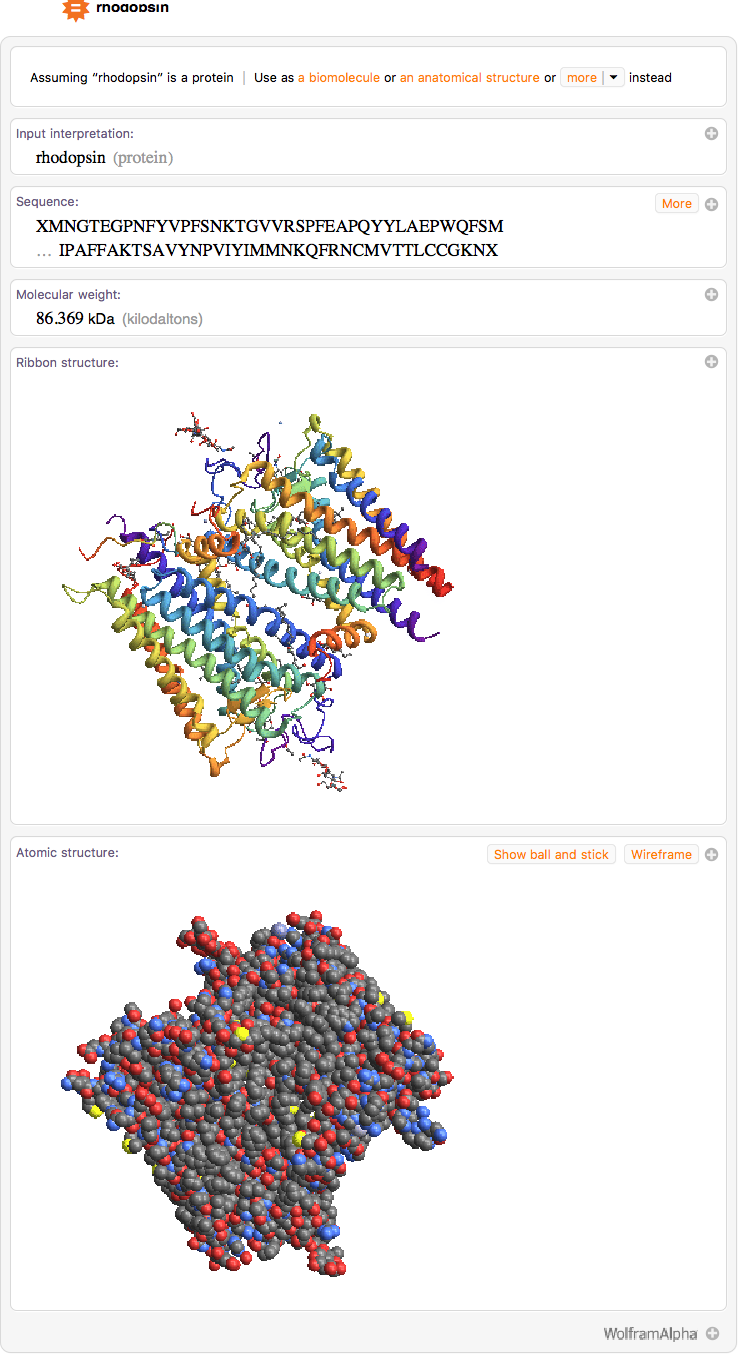
but I'd prefer the manipulatable 3D sort one gets from ProteinData[], since this is much better for classroom demos, interactive explanation, etc.
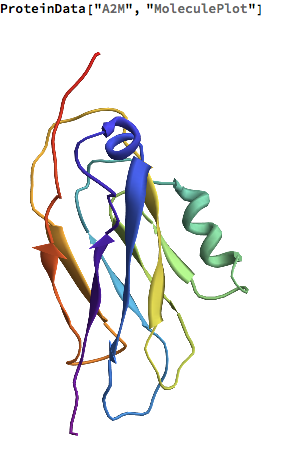
So, I try to look up rhodopsin via ProteinData in a wide variety of ways, by name, by PDB name, nada-
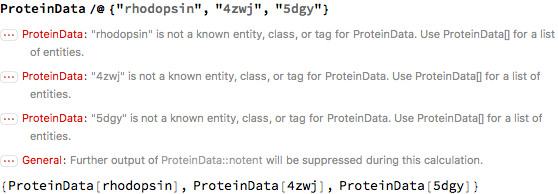
Let's try an alias ---

Success! But, there is no MoleculePlot

It knows a few things about "RHO", but not the things I need; and, more importantly, what Alpha is able to return.
So I'm at a loss here. I've tried other aliases ("OPN2", "visual purple") to no avail. I'm curious about ---
Is there any way to figure out what
WolframAlphais doing with my request, since it can clearly interpretrhodopsinorrhodopsin protein?Is there a better way to use
ProteinDatathan just randomly trying things? Is there a mapping somewhere of PDB <-> aliases, etc?Is there a way to as Alpha to return a higher resolution image than the sort-of-lame 320× I get? I know how to ask for just that pod, but it's unclear if there are any ways of asking for better / different pod content.

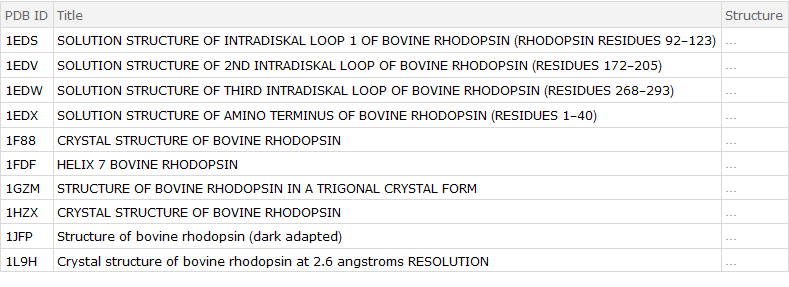
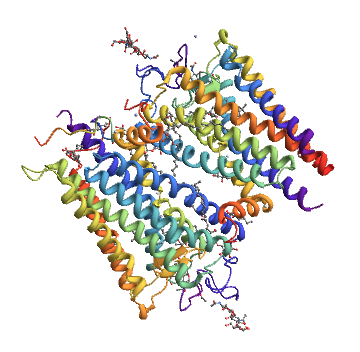
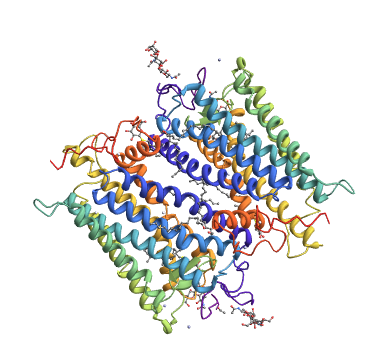
Finding Rhodopsinfull of frustration :) $\endgroup$ProteinData["RHOA", "MoleculePlot"]works becauseProteinData["RHOA", "PrimaryPDBID"]. For now you'll have to use halirutan's workaround, but I would like to fix this soon. $\endgroup$